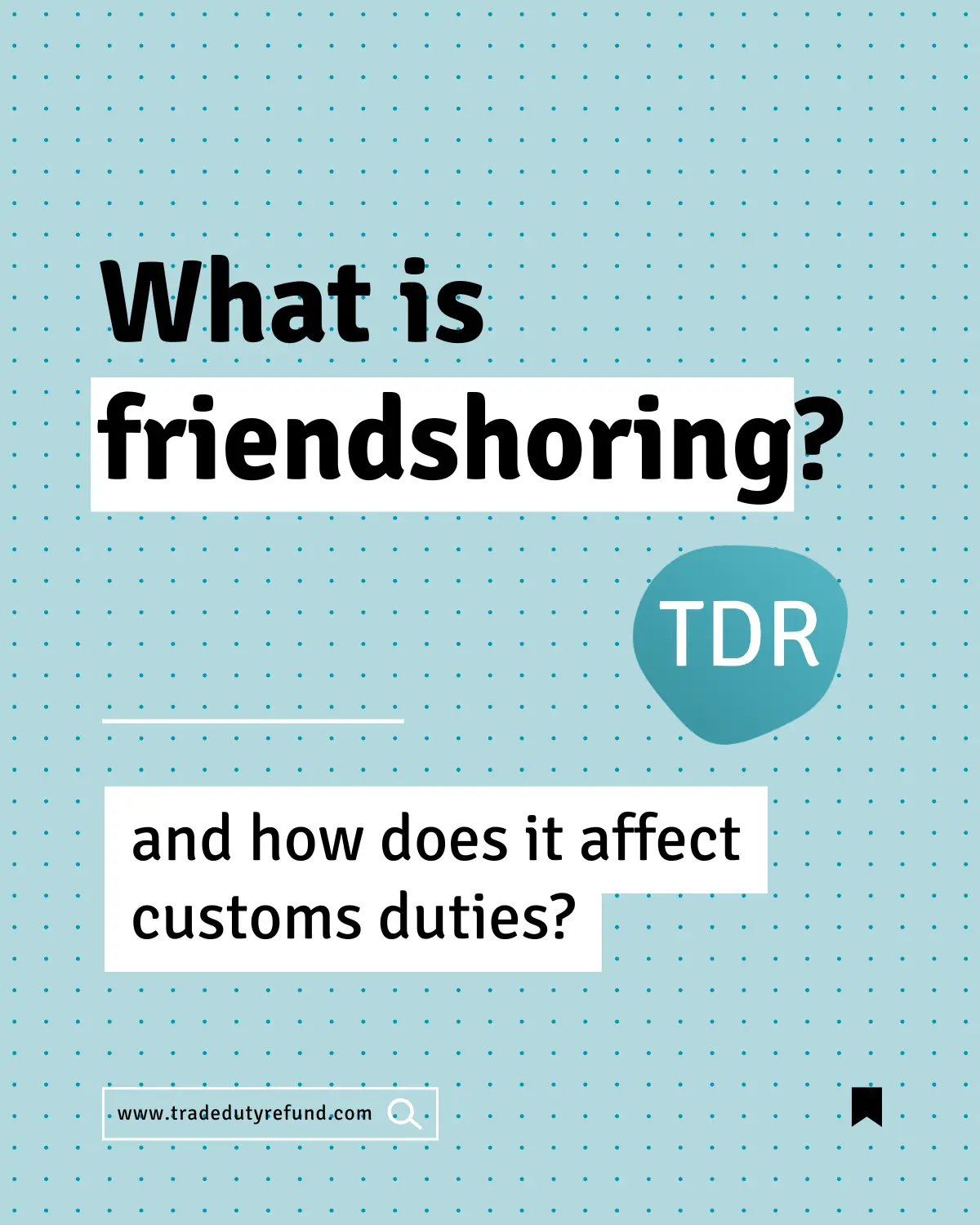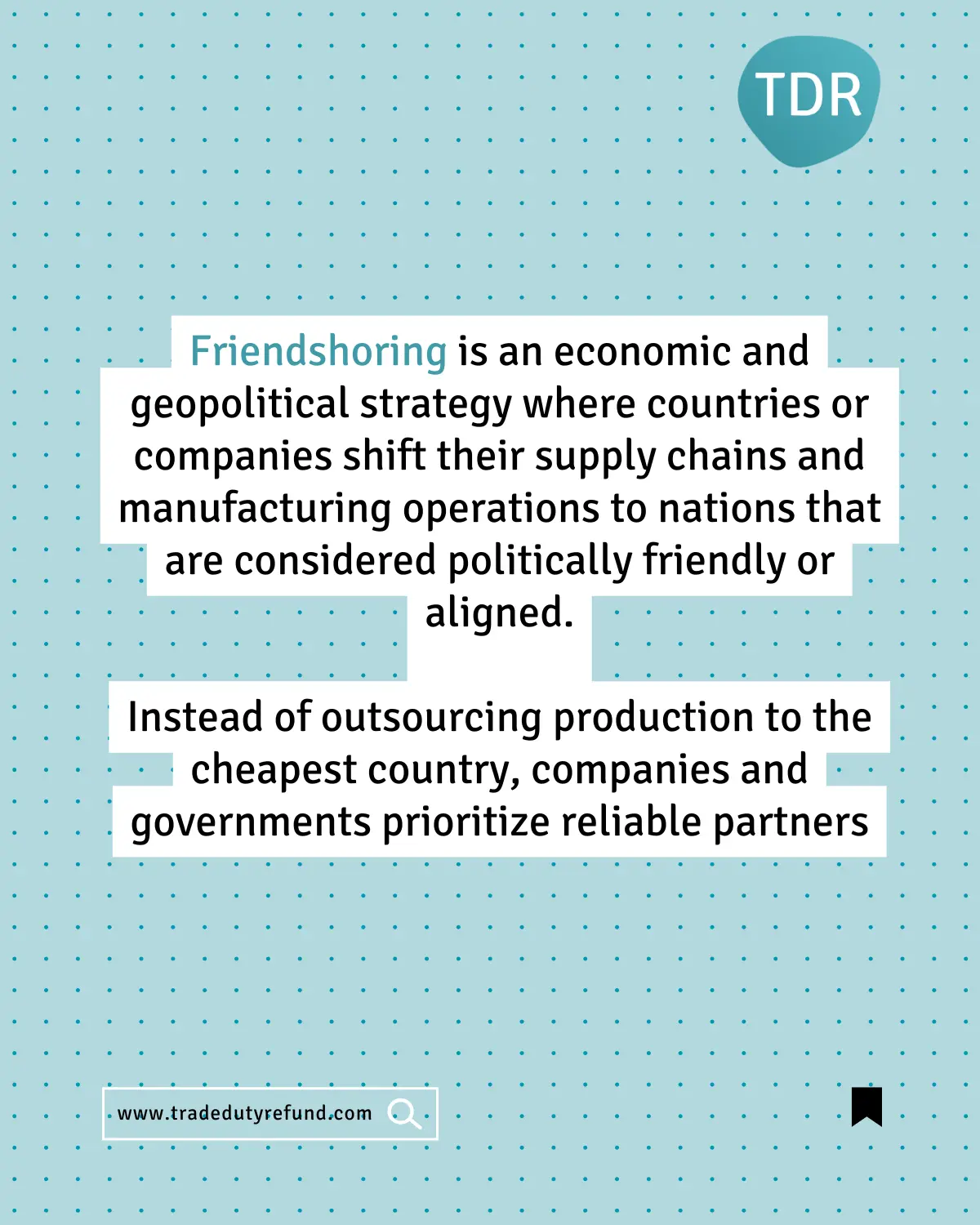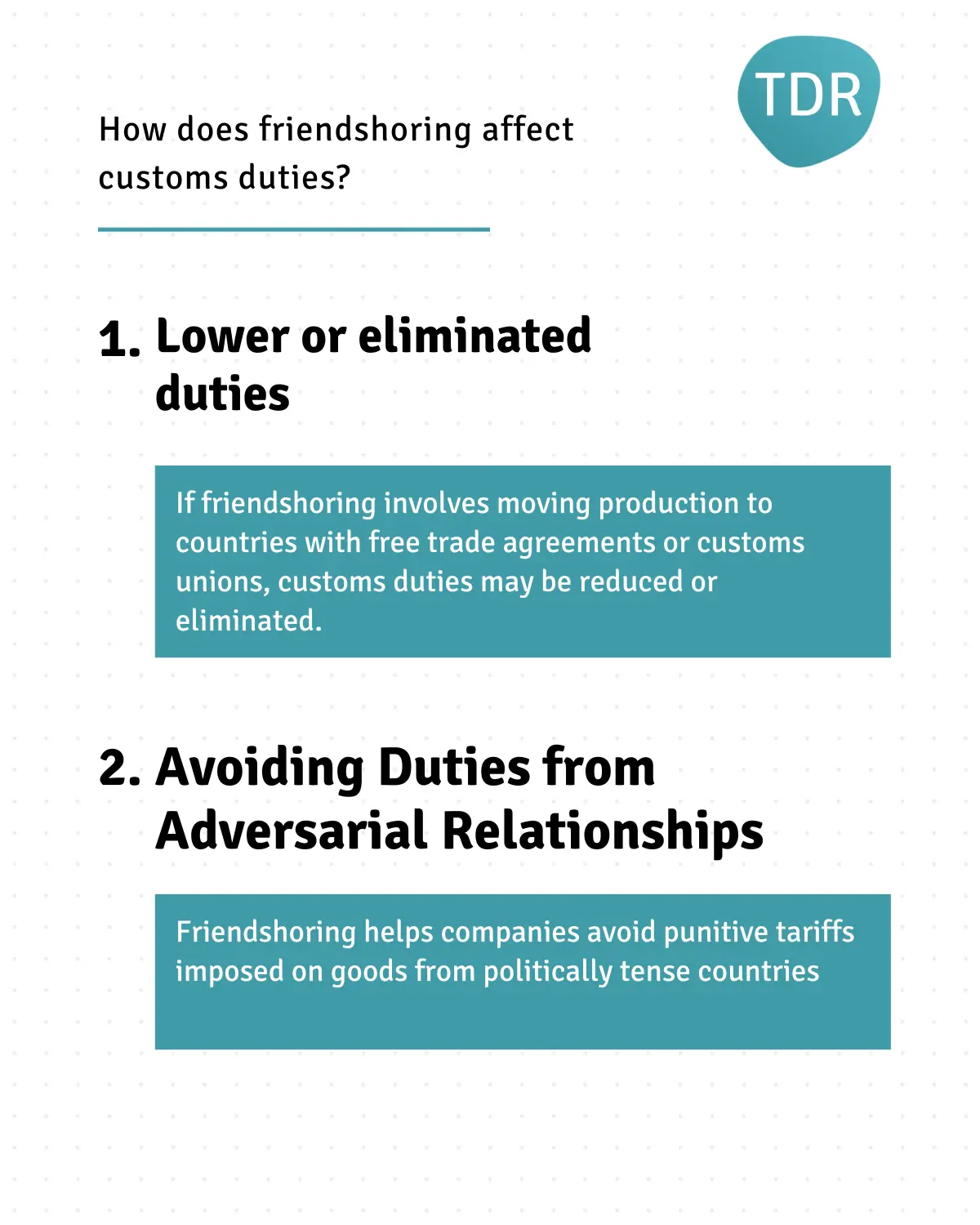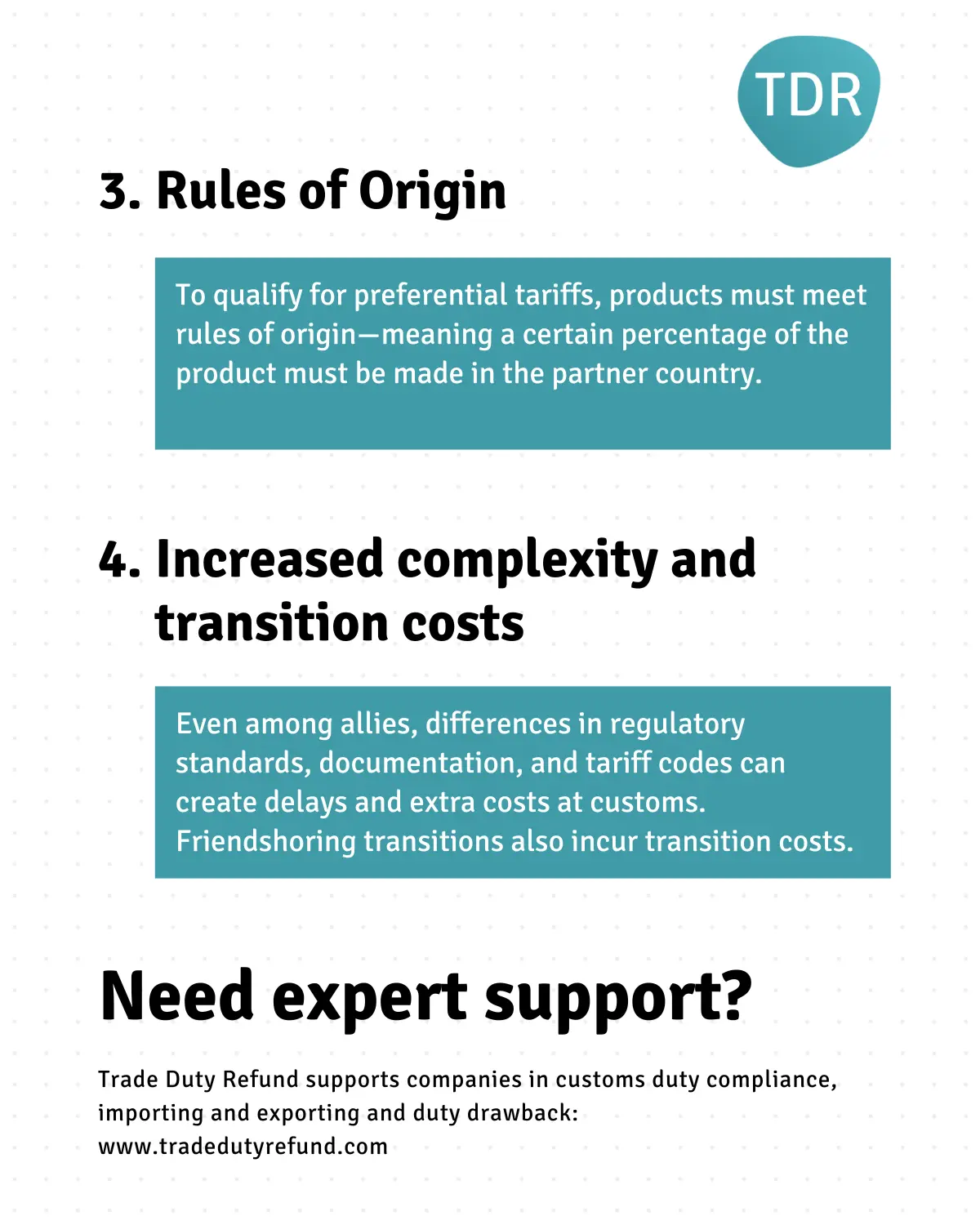Navigating Friendshoring: Customs Duty Implications for Cross-Border Retailers
In today’s unpredictable global trade landscape, friendshoring is emerging as a pivotal supply chain strategy for cross-border retailers. However, beyond geopolitical considerations, friendshoring can significantly impact your customs duty exposure.
Understanding Friendshoring
Friendshoring involves relocating supply chains to countries that are politically aligned or considered “friendly.” This strategy is often driven by rising trade tensions and aims to create more stable and secure supply chains.
The Impact on Customs Duties
While friendshoring can offer numerous benefits, it also presents unique challenges for customs duties:
-
Lower or Eliminated Duties: If friendshoring involves moving production to countries with free trade agreements or customs unions, customs duties may be reduced or eliminated.
-
Avoiding Duties from Adversarial Relationships: Friendshoring helps companies avoid punitive tariffs imposed on goods from politically tense countries.
-
Rules of Origin: To qualify for preferential tariffs, products must meet rules of origin, meaning a certain percentage of the product must be made in the partner country.
-
Increased Complexity and Transition Costs: Even among allies, differences in regulatory standards, documentation, and tariff codes can create delays and extra costs at customs. Friendshoring transitions also incur transition costs.
Expert Support for Cross-Border Retailers
Navigating the complexities of friendshoring and customs duties requires expert support. Trade Duty Refund specializes in helping cross-border retailers with customs duty compliance, importing and exporting, and duty drawback. Our e-commerce experts provide tailored solutions to optimize duty refunds and reclaim duties efficiently.
For more information, visit Trade Duty Refund and explore our comprehensive services designed to support your international trade operations.




